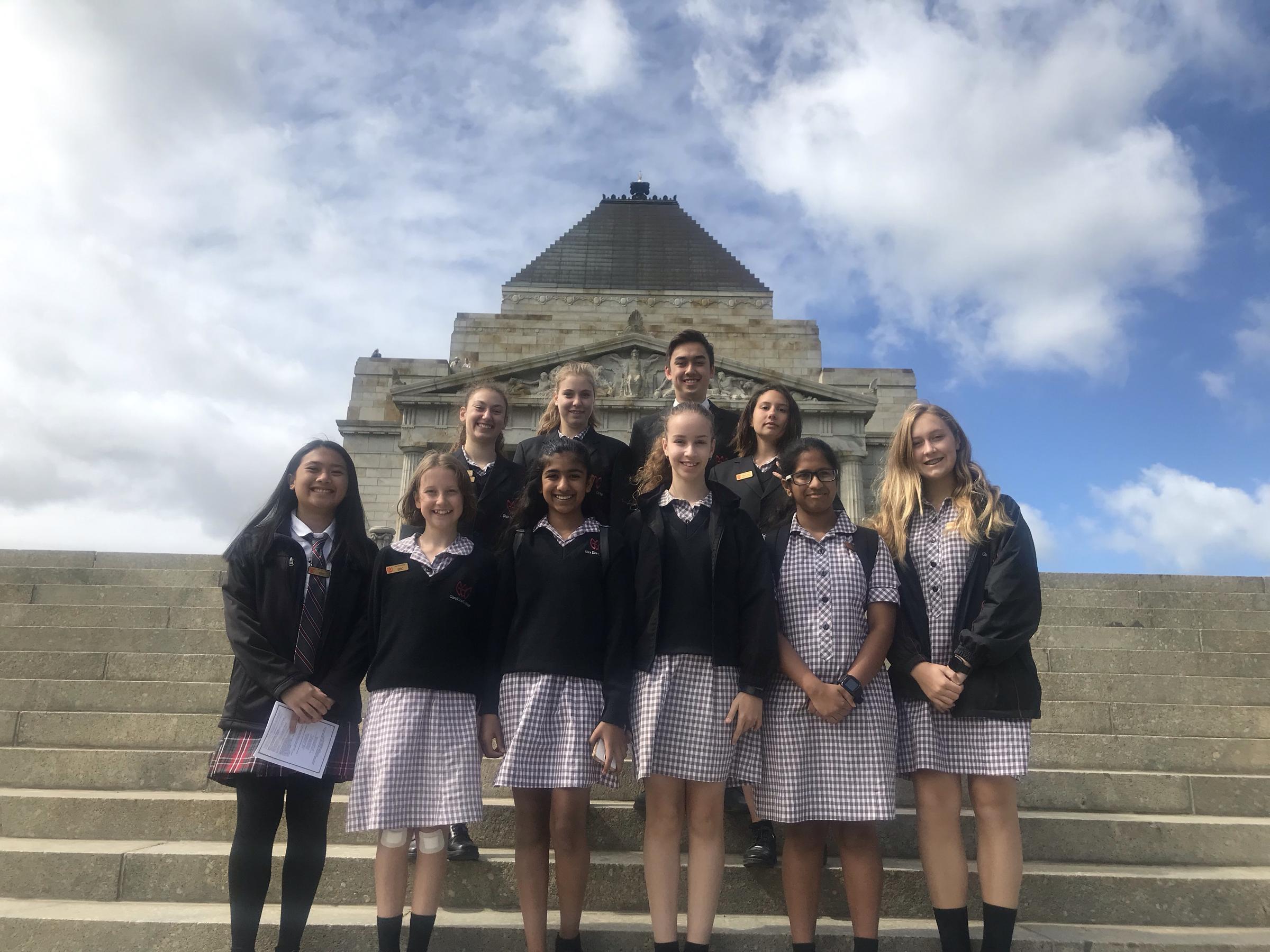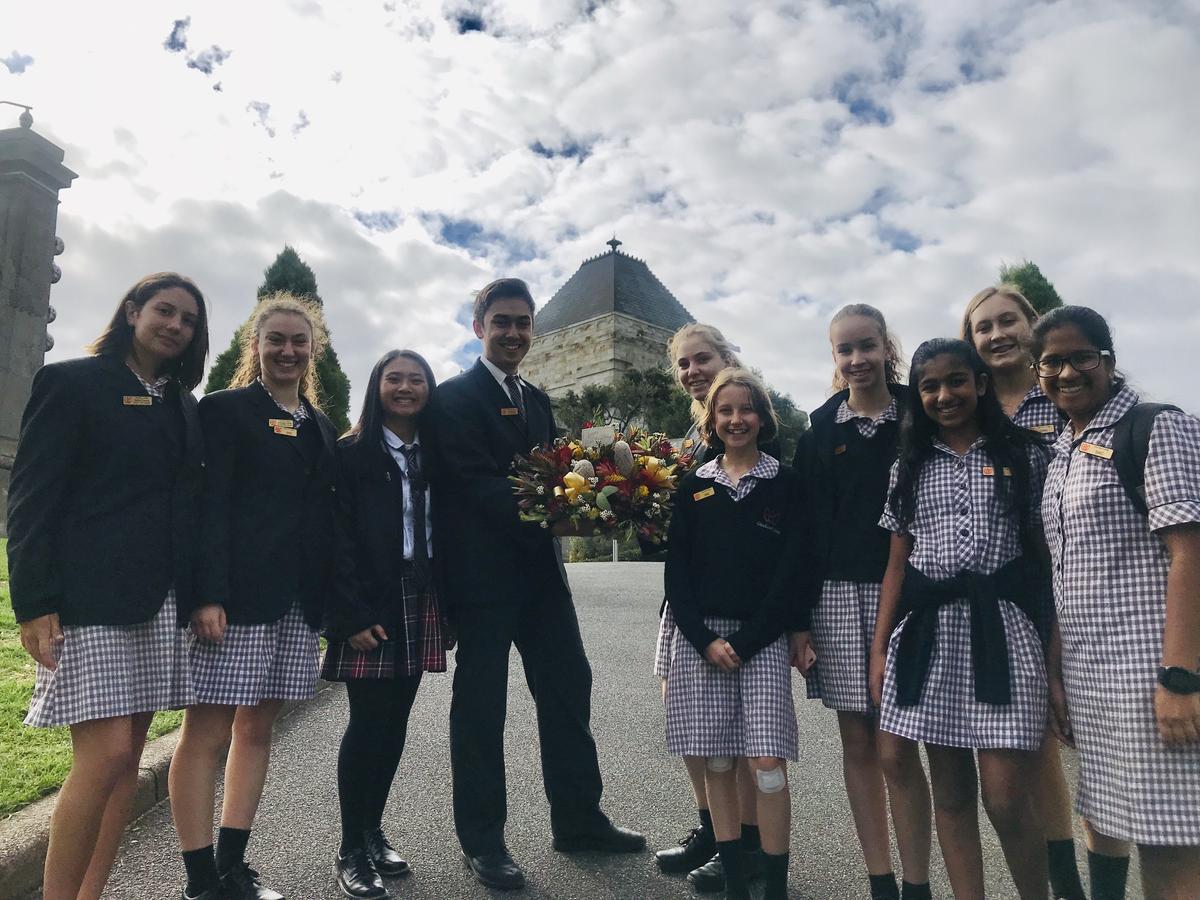Darwin Defenders Service

On Tuesday 19th February the School Captains, SRC representatives and Ms Schmidtke visited the Shrine of Remembrance to commemorate and acknowledge those who fought to protect Australia and those who were affected by the events of the Darwin Bombing that occurred on 19th February 1942. We met with students from multiple schools and were honoured to be in the presence of Army Veterans who fought during the Darwin Bombing.
There were multiple speakers who educated us on the tragedy that was the Bombing of Darwin. However, the main idea that struck us most was the censorship in regards to the bombing and how very little Australians know the truth of the events that happened during the very first war fought on Australian soil.
It was wonderful to have Ms Anne Connor, author of Two Generations, as the guest speaker. Ms Connor‘s father fought in the Darwin war and she was determined to find out what really happened in Darwin under all the hidden secrets. Her book, Two Generations is a memoir of the “secrets” of the Darwin Bombing and the life her father lived during the war. Shortly after her speech, a flypast by RAAF Museum Aircraft flew over the Shrine from Point Cook to commemorate the Air Force, Naval and Army Soldiers who fought in Darwin.
Throughout the memorial service, emphasis was giving on how important education on the Darwin bombings, and Australian history is essential to honour those who fought for and supported our country. On 19th February 1942, Australian soil came under attack for the first time during World War II.
The attack was completely unexpected; with Japanese soldiers sailing far off shore, and then flying in from the east with an air attack, there was no way for Australia to predict or prepare for the oncoming attack. With Pearl Harbour just happening months prior, Australia had expected the attacks to stay on American land.
Through this, the Australian defence forces were completely inadequate against such an attack. Not only was all of Australia lost on how the war was brought so close to our doorstep, however the rest of the world shared this feeling, and as such little help was offered to Australia and its citizens. The area was then subjected to a further 64 bombing through to 12 November 1943.
More bombs were dropped on Darwin than on Pearl Harbour, and more boats were sunk from the Darwin bombings than in Pearl Harbour, and more civilians were killed in Darwin, than in Pearl Harbour. Despite this, little support was offered to the struggling Australians.
With families being forced to move across the country, with little money and in the mourning of those lost or injured from the bombings, families begun to be broken apart. As the Parenting Payment that is now provided by the government was non-existent at the time, many mothers were forced to put their children in orphanages the moment money ran out - often leading in the separation of siblings. Australia continued to be offered little support from other countries, and was still being urged to send the defences we had available overseas to assist with other conflict. So the Australian government opted for censorship as the best course of action.
Strict censorship was imposed as diaries and letters from Darwin were slashed with razor blades, and all information and official documents regarding the air raids were stamped ‘Not to be released until 1995’ in an attempt to both keep Australian citizens calm, and hide how unprepared Australia was against these attacks. Families continued being separated, as Australia received little to no help and provided bare minimum amounts of information to Australian citizens. Because of this lack of information at the time, it is immensely important to keep the story of Darwin alive and commemorated in the present day.
It is crucial that we remember our history as a country, and provide recognition and respect to the families torn apart by the Darwin bombings, and the 200,000 Australians who served in Darwin over the course of World War II.
Sierra Danon, Taylor Lowery and Ashleigh Harris
Year 12


